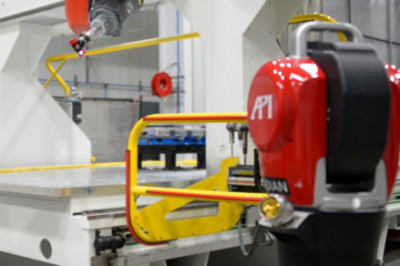Why CNC volumetric compensation is so important for accuracy in USA
In the realm of precision engineering, CNC volumetric compensation stands as a pivotal element ensuring unparalleled accuracy. This is particularly crucial in the USA, where advanced manufacturing demands exacting precision. Unveiling the significance of CNC volumetric compensation unveils a transformative facet, elevating the standards of accuracy in American manufacturing processes.
The Essence of CNC Volumetric Compensation
In the realm of CNC machining, the term “compensation” is pivotal. CNC volumetric compensation involves making adjustments to the machine’s movements based on real-time data. This ensures that the final product matches the intended design down to the micrometer. By recalibrating the machine’s movements, CNC volumetric compensation corrects for errors caused by factors such as temperature fluctuations, tool wear, and mechanical variations.
The Two-Fold Impact of CNC Volumetric Compensation
Enhanced Accuracy:
CNC machines, while highly precise, are susceptible to environmental factors that can affect their performance. Variations in temperature, for instance, can cause materials to expand or contract, leading to minute errors in the final product. CNC volumetric compensation counters this by continuously monitoring and adjusting the machine’s movements, maintaining accuracy even in fluctuating conditions.
Extended Tool Life:
Tool wear is an inevitable aspect of machining. As tools gradually degrade, the potential for inaccuracies in the final product increases. CNC volumetric compensation plays a crucial role in prolonging tool life by dynamically adapting to changes in tool dimensions. This not only contributes to cost savings by reducing the frequency of tool replacements but also ensures consistent precision over extended periods.
The Role of CNC Volumetric Compensation in the USA
In the United States, a hub of innovation and technological advancement, the demand for precision manufacturing is unparalleled. Industries ranging from aerospace to medical device manufacturing require components with exacting tolerances. CNC volumetric compensation is at the forefront of meeting these stringent requirements.
Precision in Aerospace Manufacturing:
The aerospace industry demands components that adhere to the strictest tolerances to ensure the safety and reliability of aircraft. CNC volumetric compensation is indispensable in this context, as it mitigates the impact of environmental variables on machining accuracy. This is particularly crucial for complex components where even the slightest deviation can compromise performance.
Medical Device Manufacturing Demands Accuracy:
Precision is paramount in the production of medical devices. From intricate surgical instruments to implantable components, CNC volumetric compensation plays a vital role in ensuring that each piece meets the exact specifications of the design. This is crucial not only for maintaining quality standards but also for patient safety.
Conclusion
In the ever-evolving landscape of manufacturing, CNC volumetric compensation emerges as a game-changer. Its ability to dynamically adapt to changing conditions and rectify errors in real-time elevates the precision of CNC machining to new heights. In the USA, where industries demand the utmost accuracy, this technology has become a linchpin in the pursuit of perfection. As CNC machining continues to evolve, the role of volumetric compensation will undoubtedly remain central to achieving unparalleled precision in manufacturing processes.
